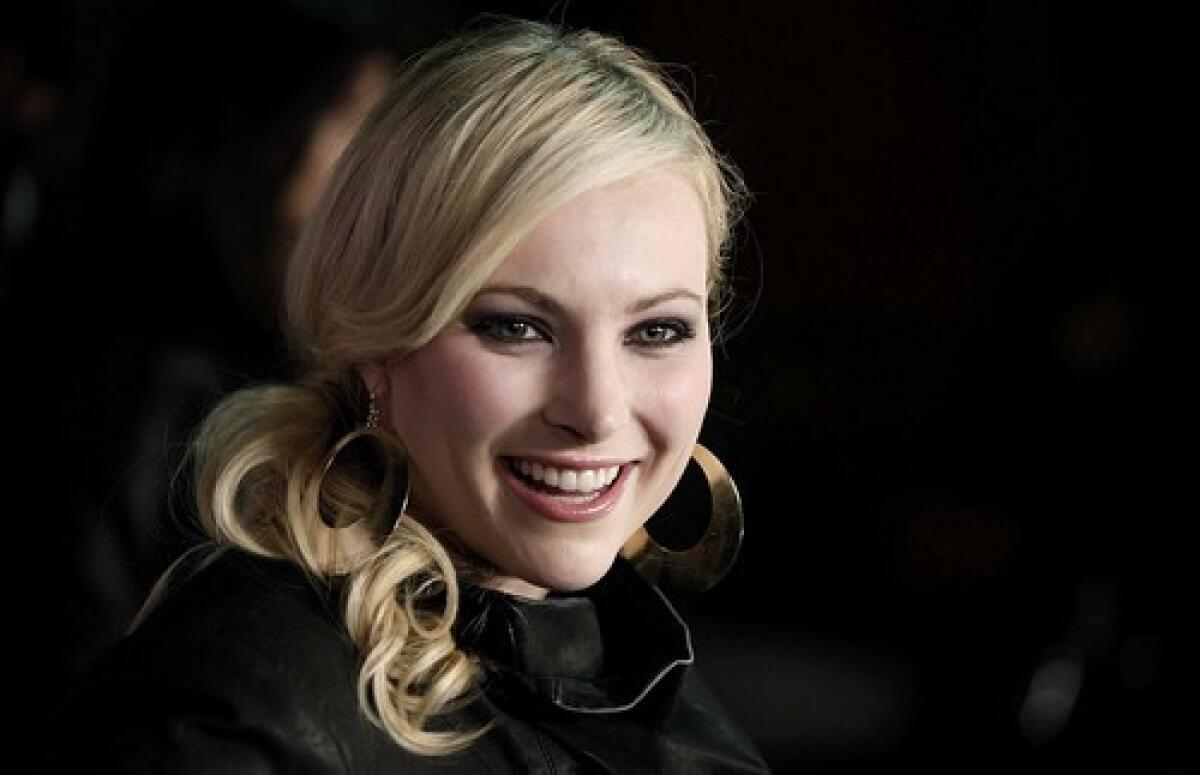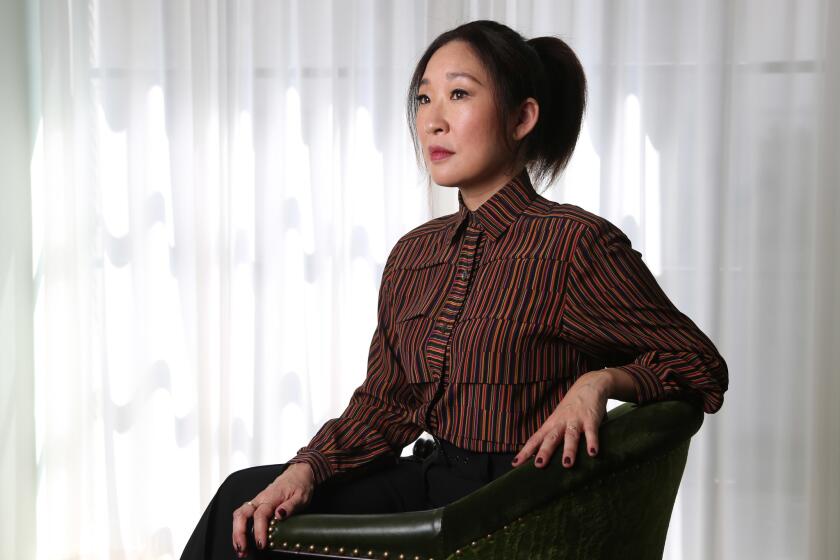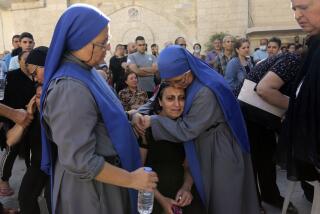Meghan McCain apologizes for previously backing Trump’s anti-Asian rhetoric

- Share via
After eight people were killed in the Atlanta area last week — including six women of Asian descent — Meghan McCain, cohost of “The View,” expressed regret about her previous comments that supported former President Trump’s anti-Asian rhetoric.
“STOP ASIAN HATE” she tweeted Wednesday, punctuating her message with three broken-heart emojis.
Thousands responded to her post with likes. But for TV host John Oliver, who opened Sunday’s “Last Week Tonight” by placing the shootings in the context of anti-Asian racism in U.S. history, McCain’s actions rang hollow.
Pointing to a clip from a March 2020 episode of “The View,” in which McCain said she had no problem with then-President Trump referring to COVID-19 as the “China virus,” the British comedian said McCain’s post was “a fine sentiment to throw up on Twitter after the fact.”
“But there has to be an understanding that saying, ‘I don’t have a problem with calling it the China virus’ is very much giving space for that hate to grow,” Oliver added.
His segment prompted McCain to issue a statement Monday morning.
“I condemn the reprehensible violence and vitriol that has been targeted towards the Asian-American community,” she wrote in a message shared on Twitter. “There is no doubt Donald Trump’s racist rhetoric fueled many of these attacks and I apologize for any past comments that aided that agenda.”
Last year, while Trump used terms like “Wuhan virus” and “kung flu” at news conferences and campaign rallies, McCain made light of the issue, suggesting that liberals were being overly sensitive in their criticism.
“I think if the left wants to focus on PC-labeling this virus, it is a great way to get Trump reelected,” she said.
“I don’t have a problem with people calling it whatever they want. It’s a deadly virus that did originate in Wuhan.”
The Atlanta man who admitted fatally shooting eight people, including six Asian women, claims race had nothing to do with it — so he’s a liar as well as a killer.
Even back then, others saw it differently.
Following last week’s spa shootings in Georgia, author R.O. Kwon penned a letter to Asian women in Vanity Fair, recalling how harmful Trump’s rhetoric had been.
“I wept, as many of you did, the day last March when the previous president started calling it a ‘Chinese virus,’ she wrote, “because we knew exactly what would happen as a result, the hatred those paired words would incite.”
The killings cast a spotlight on the knotted intersection of several dangerous ideologies that cannot be readily untangled.
After an official described the Atlanta shooter’s decision to kill eight people as “a really bad day for him,” McCain again took to Twitter. “You know who it was also a bad day for?” she wrote March 17. “The eight people and their families who this man killed!”
“Stop giving radicalized white men different allowances than any of us would have,” McCain added. “When I have a bad day, I eat ice cream and watch Tommy Boy, not gun down innocent people. Bulls—!”
Amid a rise in violence against Asians and Asian Americans, Hollywood voices have rallied behind the #StopAsianHate campaign. Actor Daniel Dae Kim has been particularly vocal, testifying last week at a congressional hearing on anti-Asian hate incidents in the U.S. And “Killing Eve” star Sandra Oh participated in a rally over the weekend.
“Killing Eve” star Sandra Oh made a surprise appearance at a “Stop Asian Hate” rally Saturday in Pittsburgh’s Oakland neighborhood, where she spoke out against the recent spate of attacks against Asians.
“For many of us in our community, this is the first time we are even able to voice our fear and our anger, and I really am so grateful for everyone willing to listen,” Oh said at Saturday’s demonstration in Pittsburgh.
“As Asian Americans, we just need to reach out our hand to our sisters and brothers and say, ‘Help me and I’m here.’”
More to Read
The complete guide to home viewing
Get Screen Gab for everything about the TV shows and streaming movies everyone’s talking about.
You may occasionally receive promotional content from the Los Angeles Times.









